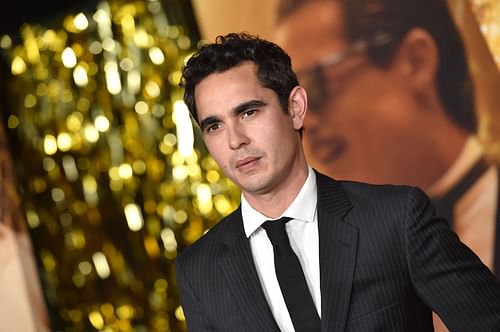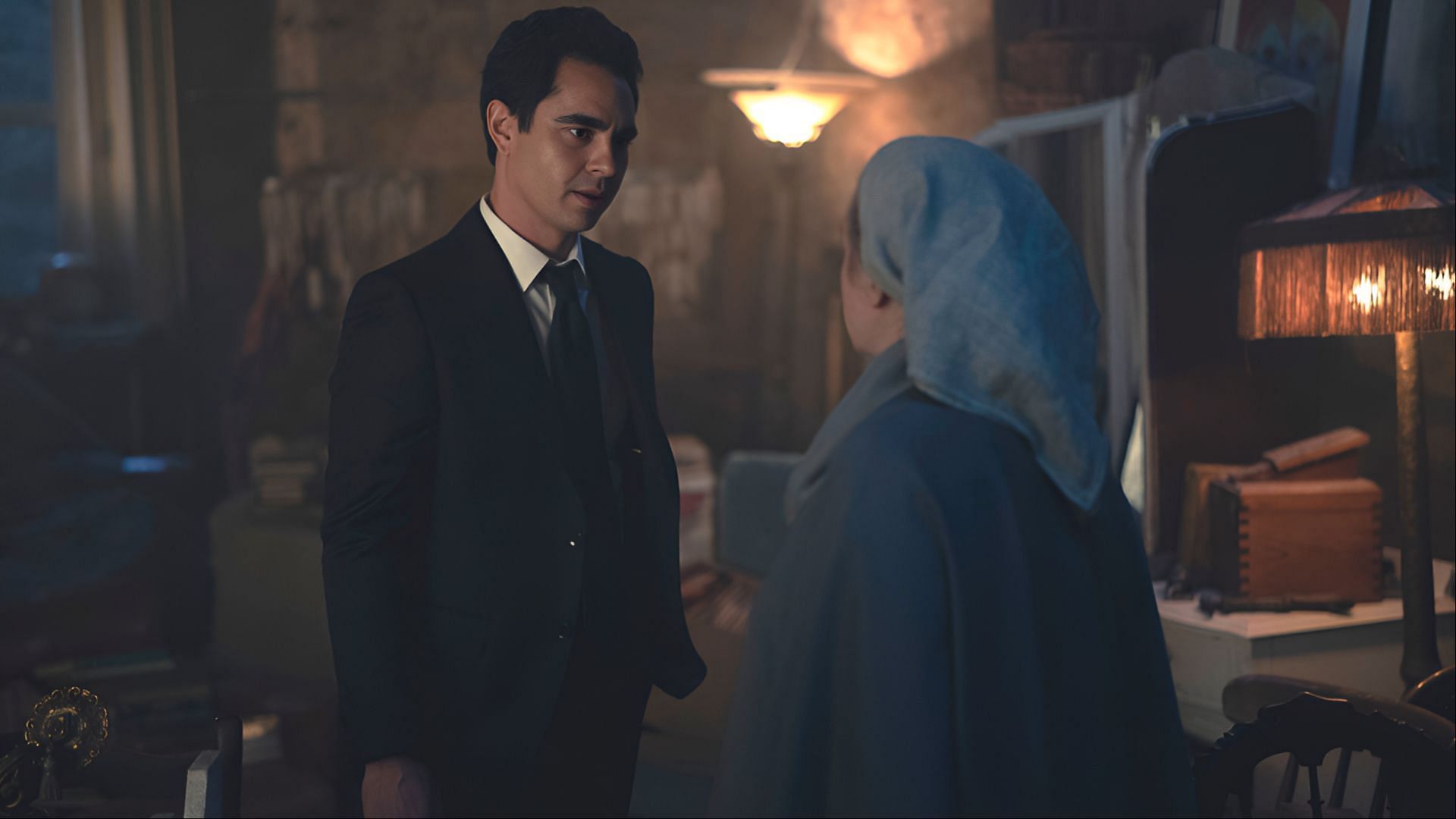"It’s a very skewed one" - Max Minghella reveals Nick's character, his betrayal, and more in The Handmaid's Tale

The final season of The Handmaid's Tale is underway, continuing June Osborne’s story in the dystopian world of Gilead. The Hulu series, based on Margaret Atwood’s novel, stars Elisabeth Moss, Yvonne Strahovski, O-T Fagbenle, Bradley Whitford, and Max Minghella. The show focuses on June’s fight against the oppressive regime and her complex relationships, including with Nick Blaine, played by Minghella.
In an April 29, 2025, interview with TV Insider, Max Minghella opened up about Nick’s dynamic with June and the layers of betrayal that shape their interactions. Reflecting on the events of The Handmaid's Tale season 6 episode 6, Minghella said,
“He is scared of him, but I think that he hasn’t had a strong male role model before. And obviously, it’s a very skewed one, but I think it just gives him some sense of security.”
Nick’s connection to Wharton adds complexity to his betrayal, rooted more in fear and survival than strategy. Minghella described Nick’s decision as a no-win situation, shaped by pressure and confusion. Though not defending Nick’s actions, Minghella acknowledged the emotional conflict and lack of alternatives he faced in that moment.
Max Minghella opens up about Nick and the Jezebels scene in The Handmaid's Tale

Speaking to TV Insider, Max Minghella discussed the tension-filled scene between Nick and June in The Handmaid's Tale episode 6, where the two characters meet at Jezebels under unsettling circumstances. Minghella shared that Nick’s motivations in the moment were complex and influenced by the years of history the two characters share.
“That was a very complicated and emotional scene to shoot,” Minghella said.
"It’s a very skewed one, but I think it just gives him some sense of security..”
He added that shooting the Jezebels sequence was 'deeply uncomfortable' for both actors, but it was important to showcase how there’s still a lot of energy between them.
The scene does not provide clear answers but reflects the blurred emotional boundaries between the characters. Minghella also noted that the setting of Jezebels, a recurring location in the show known for its association with exploitation, was significant in itself. He pointed out that this was Nick’s idea, not June’s, emphasizing the power imbalance and the internal contradictions in his character’s choices.
When asked about Nick’s intentions, Minghella refrained from making any moral judgments but acknowledged that Nick might not fully understand the impact of his actions. “He thinks he’s helping,” Minghella said, suggesting that Nick’s perceived betrayal is rooted in misunderstanding rather than malice.
In the same interview, Minghella added that Nick’s alignment with Wharton plays a key role in his decisions. Wharton’s presence, as a dominant authority figure, brings a sense of control that Nick had never experienced before.
“It’s the first time there’s been a paternal figure to Nick that we’ve seen who actually makes him feel safe, for better or worse.”
Minghella explained that Nick’s loyalty is often driven by fear and a need for structure, noting,
“He’s also a survivalist. I think there’s a pragmatism to it, and certainly in a lot of the previous seasons.”
Minghella emphasized that Nick’s actions in The Handmaid's Tale season 6 stem from a growing internal conflict. While he continues to assist June and care about her safety, his role in Gilead and new family responsibilities, like his pregnant wife, are pulling him in different directions.
“He has a wife that he does care about. He has a child coming. He has a responsibility there that he also feels a moral obligation to.”
Who Nick is and why his actions matter in The Handmaid's Tale

Nick Blaine has been a central figure in The Handmaid's Tale since the early seasons. He was initially introduced as the Waterfords’ driver and caretaker, wearing a navy Guardian uniform. Over time, he rose through the ranks to become a Commander, signified by his all-black attire.
He is also the father of June’s daughter, Nichole, and his relationship with June has remained central to the plot. Throughout the series, Nick has been portrayed as a quiet and reserved character who keeps his intentions unclear. He joined the Sons of Jacob during a time of economic hardship and eventually became part of the Eyes, using the role strategically to monitor Commander Waterford.
Although he appears to support Gilead’s regime externally, flashbacks reveal a complex backstory involving family struggles, early disillusionment with Gilead’s practices, and a desire to protect those he cares about.
Nick’s climb through Gilead’s ranks has not been part of a grand ambition. According to Minghella,
“Things seem to kind of happen to Nick.”
His choices are often shaped by necessity rather than desire. Minghella further noted,
“He’s not somebody who I see make a lot of leadership decisions. He tends to be told what to do.”
Despite this, Nick finds himself increasingly caught between his past with June and his current responsibilities in Gilead. The Handmaid's Tale season 6 complicates Nick’s moral standing. His role in shutting down Jezebel’s has changed how June and the audience view his character.
In one of the season’s pivotal moments, Nick asks June to run away with him, unaware that she has already overheard the truth about his betrayal. The consequences of that moment, combined with his inner conflict, have left Nick emotionally adrift.
As The Handmaid's Tale nears its end, Nick’s storyline continues to influence both June’s personal journey and the larger conflict within Gilead. His survival tactics, emotional choices, and divided loyalties play a critical role in determining what happens next.
The Handmaid's Tale is available to stream on Hulu. New episodes of the sixth and final season are released weekly. Viewers can catch up on previous seasons on the platform.




